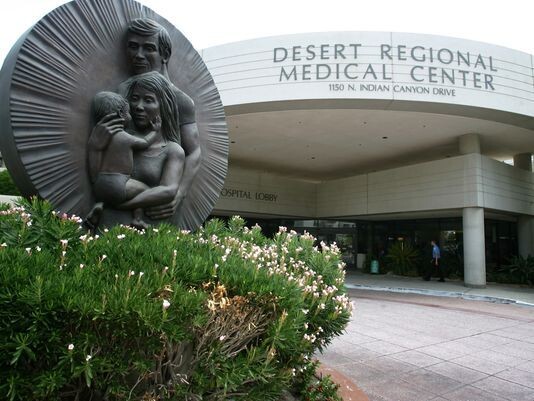Desert Healthcare District CEO on Desert Regional: 'The Board prefers a 30-year lease'

Seven of your neighbors elected to serve as directors of the Desert HealthCare District are grappling with a momentous decision: whether or not to accept a proposal from Tenet Health, the current Desert Regional Medical Center operator. The deal, which arrived in September last year after several years of talks, would extend Tenet’s current lease from 2027 to 2057. Any deal the District negotiates with Tenet would come to the voters for approval before going into effect.
The directors are aware that their decision will have far-reaching consequences for healthcare in the Coachella Valley, far beyond the walls of the hospital.
Under the deal as it presently stands, Tenet would pay the District the full fair market value of the hospital, as determined by an independent appraisal. In round numbers, the appraisal establishes the price to be paid to the District in today’s dollars at approximately $475 million.
Tenet proposes to pay the $475 million to the District in two ways. First, by assuming responsibility for the seismic upgrade of the hospital, as required by state law by 2030. The cost of this upgrade is estimated by the District to be $185 Million. Tenet would pay the balance of the price in a series of installment payments over 15 years. Those installments would total about $290 million in today’s dollars. But the offer comes with a wrinkle: despite our best efforts to negotiate the provision out of the deal, Tenet is requiring an option to buy the hospital at the end of the new lease for approximately $10 million in today’s dollars. This forces the district board to face the prospect of giving up public oversight of the hospital in 2057.
If the District does the deal, the seismic problem will be solved and $300 million would be available to address well-documented shortfalls in healthcare access within our local communities. Over the past 25 years, the District has invested $100 million supporting community healthcare. The $300 million from Tenet would definitively expand that effort.
If the District decides to refocus its mission on the hospital, it could reject Tenet’s proposal. But timing of some existing lease provisions makes things difficult: Tenet is not required to cooperate with the District in finding a new hospital operator until 2026. That would give the District 12 months before the lease ends: not enough time for a new partner to do what is necessary to prepare to manage the hospital and for the District to conduct the required election approving the transaction. Even if that were possible, the new operator would not have enough time to plan, finance and construct the seismic upgrades by 2030.
